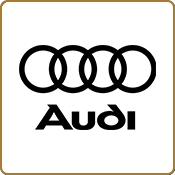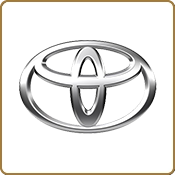Travelling from Dubai to Abu Dhabi by road is an experience on its own, getting a chance to see the magnificent deserts and explore the distinction between two of the UAE’s best cities. While the journey from one city to another is upfront, it’s important to understand the driving rules to drive a rental car and the particular regulations that are there when you travel from one city to another city by road. Opt for Gateway Car Rental for hopping cities in UAE.
The best part of Gateway car rental is, cross-emirate car hire is a conventional and authorized practice. The UAE is a country which is connected greatly with a road network that is consistent and traffic rules that are uniform, making the drive between Dubai and Abu Dhabi an experience free from problems for most drivers. However, keeping a few things in mind will make your trip comfortable and free from fines.
1. Essential Documents for Travelling from One City To Another
Whether you’re a tourist or a local resident, having the perfect documentation is non adjustable. Always keep these documents along with you:
- A Driving License Which Is Appropriate: For residents of UAE, this is a license issued by the UAE government. For tourists, a driving license from your country of origin is necessary, and depending on which country you belong to, an International Driving Permit (IDP) is an absolute essential document. It’s important to check if your country of origin is on the approval list of driving in the UAE without an IDP.
- A Copy of Your Rental Agreement is required: This is important evidence that you are sanctioned to drive the car and that you have been approved for driving a rental outside Dubai.
- The Passport and A Copy Of Visa: Always keep your Identification documents with you, as they may check with you and ask for it at any inter-emirate checkpoints, although this may be done sometimes by the authorities.
- Copy Of Insurance Papers: While most car rental companies will control this, it’s a good habit to carry a copy of the car’s insurance papers with you.
2. Understanding the Toll Systems Of Dubai And Abu Dhabi
The most essential difference you’ll experience is the toll system. While Dubai is known for Salik, Abu Dhabi has a divergent toll system known as Darb.
- Salik For Dubai: Your rental car will be enabled with a Salik tag. Every time you cross a Salik gate, a fixed charge is invariably deducted. The rental company will impose this amount to you, often with an added fee which is usually for administration.
- Darb in Abu Dhabi: The toll system of Abu Dhabi, Darb, operates a little differently. It charges a toll during peak hours which is from Monday to Saturday (7AM to 9AM and 5pm to 7pm). Your car rental company will be enlisted for this, but it’s important to know the hours of when it operates and that these charges will be levied on you by the car rental company.
It’s important to understand from your car rental company about how they negotiate these tolls to avoid any unexpected fines on your final bill.
3. Traffic Rules and Speed Limits Of Cars
While the UAE travel rules are mostly constant, there are small differences in speed limits and traffic rules between cities of UAE.
- Speed Limits Of Vehicles: The primary highway that connects Dubai and Abu Dhabi better known as the E11, has a speed limit that can change from time to time. Pay attention to the electronic signboards and markings on the road. While a speed limit of 20 KM/h is allowed sometimes, it’s not mandatory in all areas and depending on it can lead to a fine. It’s ideal to adhere to the mentioned speed limit to be safe.
- Discipline regarding Lanes: On the E11, the far-left lane is strict as far as speed limits are concerned. If you drive slowly on this you will be charged with fines. Keep your car to the right lane unless you are actively overtaking.
- Fines in the Traffic: One must be careful of traffic cameras. Both Dubai and Abu Dhabi have an extensive system of speed cameras, as well as cameras for other traffic violations like using a mobile phone while driving or not wearing a seatbelt. Fines are sharp and are automatically deducted from your rental company’s account, which in turn will be levied upon you, usually with an additional administrative fee.
4. Condition Of Cars and Restrictions
Before going from Abu Dhabi To Dubai or Vice Versa, do a rapid check to make sure everything is in order.
- Policy For Fuel: Make sure you know the fuel policy of your car rental company. Full to Full meaning returning the car with the tank full is the most sought after and viable option.
- Limits On Mileage: Check with your car rental agreement for any caps as far as mileage is concerned. The distance from Dubai to Abu Dhabi is approximately 140 km up and down, so a returning trip is available as usual with infinite mileage policies, but it’s always good to confirm from your car rental company, especially if you plan on extending your time period for sightseeing in Abu Dhabi.
- Restrictions On Car Usage: Your car rental agreement will almost certainly forbid you to take the car off the road. The desert roads of UAE are not for standard rental cars and doing so can void your insurance.
Conclusion
Driving a rental car from Dubai to Abu Dhabi is an outstanding experience as well as exploring the UAE on your own terms. If you are prepared beforehand, understanding the driving rules to drive a rental car, and paying close attention to the particular regulations for cross-emirate car hire, you can make sure your trip is a memorable and enjoyable one.
FAQS
1. What happens if I get a traffic fine?
Fines are the responsibility of the drivers. The rental company will be made aware of the fine and the amount will automatically be deducted from your credit card, often with an administrative fee. Fines are generally imposed for things like speeding of the car, overtaking, and for not wearing seat belts.
2.What should I do in case of an accident?
If you somehow get involved in a minor accident attaining minor injuries,remove your car to a spot that is safe to avoid blocking the traffic. You must contact the police to get a police report, which is important for any claim for insurance. If you fail to get a police report you will be liable for the full cost of any damages.





















 English
English French
French German
German Italian
Italian Spanish
Spanish Japanese
Japanese Korean
Korean Russian
Russian Arabic
Arabic